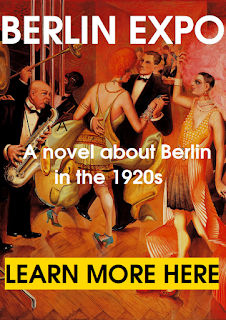 |
| Bundesarchiv, Bild 102-10131 |
Otto
Braun. have you ever heard of him ? An extremely ordinary name,
like Hans Müller, or Karl Schmidt. Still, he hold a key position in
Germany’s history in the first half of the 20th century.
If
his name nevertheless doesn’t ring a bell with you, there is a good
reason for that. The important position he hold was not in the German
republic’s government but in the Prussian region’s. And while
many have heard of Weimar Republic’s politicians like Gustav
Stressemann, Walter Rathenau,
Friedrich Ebert or Paul
von Hindenburg, few are
aware that there was another important
state in the Republic,
quite independent of the Reich, a kind of republic
inside the republic. It was the Free State of Prussia.
The
son of a railway clerk in Königsberg, he joined the social
democratic party SPD at the age of sixteen and soon became well known
as a leader among rural labourers in East Prussia.
After
the German Empire collapse in 1918, he became prime minister of
Prussia, a post he retained for more than ten years, thanks to his
ability to build stable coalitions with catholics and liberals. He
was also aided by the fact that Prussia was a full parliamentary
democracy, unlike the German republic, where the prime minister had
to co-habite with a president with formidable powers. The Weimar
Republic was, from 1925, undermined by its president, marshal
Hindenburg, who was not a republican but a monarchist. In his
Prussia, Braun could rule without that kind of interference. Having a
parliamentary majority sufficed.
One
could compare the Weimar Republic’s constitution to the French
Fifth Republic of today, whereas Prussia’s constitution was more
like the German one of our days.
Braun’s
pragmatism and moderation helped to create a framework for harmonious
government in Germany’s
largest federal territory under the Weimar Republic. Prussia
became the bastion of democracy and political stability within the
Weimar Republic. Whereas Weimar politics at the national level were
marked by extremism, conflict and the rapid alternation of
governments, the Prussian grand coalition held firm and steered a
steady course of moderate reform. Whereas the German national
parliaments of the Weimar era were periodically cut short by
political crises and dissolutions, every one of their Prussian
counterparts (except the last) was allowed to live out its full
natural lifespan.
In
1932, Braun could look back with a certain satisfaction on what had
been achieved since the end of the First World War. ‘In twelve
years,’ he declared, ‘Prussia, once the state of the crassest
class domination and political deprivation of the working classes,
the state of the old feudal Junker caste hegemony, has been
transformed into a republican people’s state.’
But
later that year, his proud Prussia lost its autonomy through a coup
d’état, and in 1933, Braun, like other democrats, was forced into
exile.
Some
information from Iron kingdom, by Christopher Clark.
 |
No comments:
Post a Comment